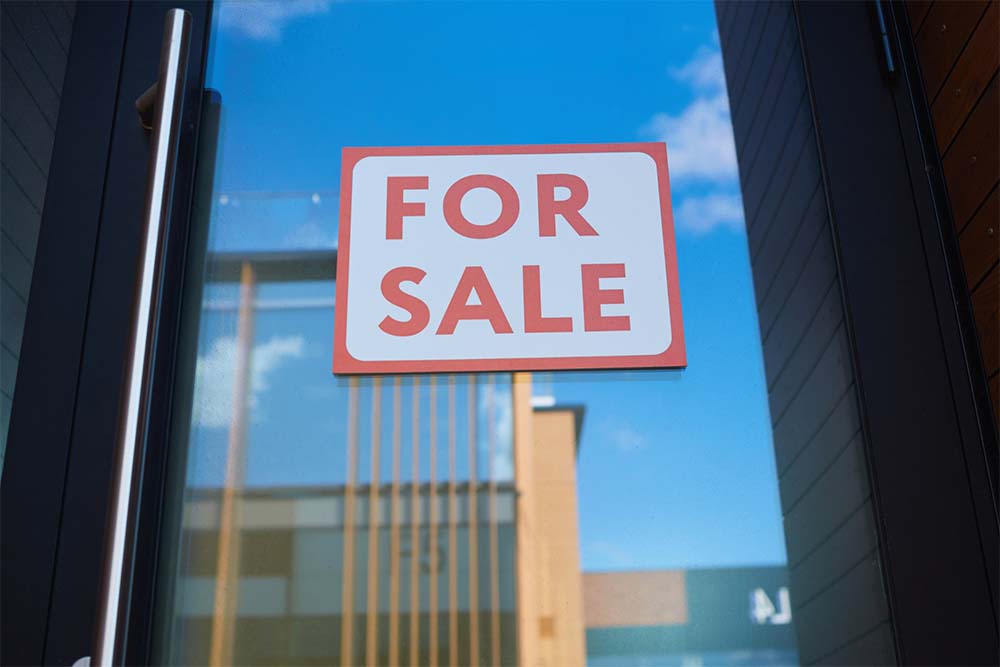“It depends,” is a normal lawyer response to just about any question. So, it is no surprise that was a response recently when a client asked me, “When do we sell our property?”
I wasn’t attempting to be coy or sarcastic; I was setting up the following advice that I give anyone who has a rental property. The first principles of real estate investing are that investors own a property in hopes of making profits, be those monthly rental payments that provide recurring revenue or profits from the sale of appreciated property. Thus, determining when to sell a property will depend on the goals set for your company.
Recurring Monthly Rents
For the investor who has purchased a property for a good price and makes a tidy monthly profit on rental income, the inflection point of rental income to property value must be assessed. Said another way, when the value of the property as a whole far exceeds what the rental income could be, then it would be time to consider selling that property for the appreciated value and taking profits. As an example, consider the following:
Bob buys a three-bedroom, two-bathroom house for $200,000 in a nice suburb outside of a metropolitan area in year 1. Good schools, low crime, and property values are climbing at a rate that shows the area will continue to be a great bedroom community. Bob is charging a tenant $2250 in rent a month, and the property has performed well. Here are the numbers for Bob each month:
Loan Amount: $160,000
Down Payment: $40,000
Insurance per Month: $100
Interest Rate: 3.5%
Term: 15 years
Monthly Payment: $1,143.81
Rent – Loan Payment = ($1,106.19 x 12) = $13,274.28 per year
Bob is making approximately $13,000 a year in profits. In year 5, the property value has increased to $295,000. Bob has taken depreciation on the property under Section 179 of the tax code, he has been able to deduct ordinary business expenses under Section 162 of the tax code, and his monthly profit has been consistent. These factors have provided Bob with a nice year-end profit for his investment.
However, the area cannot sustain rental rates of $3000 per month for the same three-bedroom, two-bathroom house. Thus, if Bob sells his property for $295,000 in year 5, he will recoup his initial $40,000 down payment, plus the delta between the purchase price and the sale price of approximately $95,000 (less real estate agent fees, if any, of approximately $17,700 for a total of 6% commission). So, at the end of the transaction, Bob will receive about $117,300 at closing, which is about 10 years of rental payments at the current rental rates. This is a good time to sell this property.
The key takeaway from this example is that the recurring monthly rents would not keep up with the property value for Bob to continue to make a profit that is in line with the market; thus, this would be a good time to sell. If Bob could have raised rents every year for 5 years to achieve a monthly rent of $3000 per month, then Bob would be wise to retain the property until the inflection point dropped off.
Buy for Appreciation
When an investor buys a property for the goal of a fix and flip, a BRRRR, or for forced appreciation, the calculus changes for when to sell that rental property. When is that going to happen? That is completely dependent on the investor.
When an investor buys a property that is not cash flowing well and is not what most investors would consider a good investment and the investor turns it into a good investment, then the appreciation tipping point is identified when the rates are sufficiently set at market rates. The following example illustrates this point:
Bob buys a quadplex in an area that is just outside of a city that is seeing good economic growth. The property is in need of some repairs, and good management will allow for rent increases. Bob buys the property for $300,000. Each unit is rented for $550 a month for a total rental income of $2200 per month.
Bob has planned to turn each unit at the end of the current tenants’ individual lease term. When a unit turns, Bob replaces carpet with luxury vinyl laminate flooring, replaces cabinet pulls and doorknobs, and paints the walls. Bob then increases the rent for that unit by $100 a month in year 1. Each year thereafter, Bob increases the rent by 10%.
Year 1: $650
Year 2: $715
Year 3: $786.50
Year 4: $865.15
Year 5: $951.66
By year 5, Bob has a rental income of $3,806.64 per month. The market appreciation for the property is now $450,000. Thus, the cap rate for this property is:
$45,679.68/ $450,000 = 0.10
These numbers are not exact, but are for illustration purposes.
Not only is the property cash flowing well, but the value of the property has also increased to an extent that the investor has created value that otherwise would not have been possible if he had simply waited for market appreciation.
Bob increased the rents by $401.66 per unit per month since purchasing the property. If the investor bought this property to increase its value, he has achieved that goal. Between his cash flow and his purchase price, this investor has achieved significant appreciation for this quadplex. Would it now be a good time to sell this property?
Again, it depends! Bob won’t really see the value of the forced appreciation until he sells. Forced appreciation is generally a one-time benefit of the property. By increasing the value of the property through rent increases, Bob will make his money on the sale. So, Bob should sell the property now.
Closing Thoughts
When does selling your property make sense? Well, it depends on you and why you bought the property. If you bought a 20-unit apartment complex, cleaned it up, stabilized rents, and raised rents to a point that the property is cash flowing well in year 2 or 3, then your timeline for selling the property is completely dependent on you.
Good luck out there and remember to set your goals when you purchase the property and work your plan.
This article was originally published on Best Ever Commercial Real Estate.




